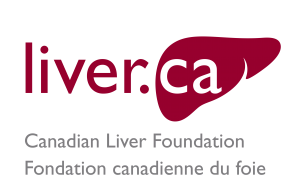Questions To Ask Your Doctor

Questions To Ask Your Doctor
A visit to your doctor can be a challenging experience. Many doctors have jam-packed schedules; meaning they may not have as much time as they would wish to discuss issues in detail with their patients. As a patient, you may not think to share all the information your doctor needs, or remember all the questions you wanted to ask until after you leave the office.

Whether you have already been diagnosed with a liver disease or are visiting your doctor with symptoms that you are hoping to have explained, it is essential that you take charge of your health and wellbeing—providing accurate information to your doctor or health care provider and making sure that you understand the information they give to you.
The following are tips from the “How To” Health Guide on questions to ask the doctor, how to get the most out of each appointment and how to ask for a second opinion.
What to say
Before you see your doctor, make a list of the following information:
- How long have you had each of your symptoms? When did your first notice them?
- How do you feel over a 24 hour period? (I.e. what times of day do you feel most of your symptoms? After meals? During specific activities?)
- List all of the treatments/medications you’ve tried already and when you started/stopped them. How did they make you feel?
- List all the medications you are currently taking, including prescription drugs, over-the-counter medications, herbal remedies, supplements and others.

What to Ask
During your appointment, do your best to get the answer to the questions below. Don’t be afraid to take notes—there are so many things to remember—it’s easy to forget something that could prove to be vital. We recommend you invite a family member or friend to accompany you on your doctor visit to also take notes and help ensure you don’t miss any crucial information. As a courtesy, you can let your doctor know you are taking notes because the amount of information can be overwhelming and you would like to have something you can refer to later.
- What do you think is wrong with me? What is my diagnosis? Do I need to have a/multiple test(s)? If so, when will I have the test(s)? What is the reason for the test(s)?
- When and how will I get the results from my test(s)? What are my treatment options?
- What are the next steps?
- Does the hospital, clinic, medical centre, etc. have a social worker or patient advisor that can help me better understand next steps? Do you have any patient information sheets or brochures that I can read to educate myself?
- Where can I get more information about my condition? Are there any lifestyle changes that I need to make?
- What more can I do for myself to help improve my condition? Who should I contact/where should I go if I start to feel worse?

How to ask for a second opinion
A second opinion may help you learn more about your disease, gain a different perspective on treatment options and reassure you that you are pursuing the right treatment options.
Keep in mind that:
- Many doctors are comfortable with patients seeking a second opinion, especially in the case of a serious disease diagnosis.
- If you are nervous about asking your specialist to refer you to another specialist, then ask your family physician to make a referral to a second specialist.
The “How To” Health Guide is published by the Health Charities Coalition of Canada. Please feel free to download the entire guide from our website to learn more important information regarding understanding the health care system, managing your condition, paying for your medication, participating in a clinical trial, and asking for the support you need.




I’m not that much of a online reader to be honest but your sites really
nice, keep it up! I’ll go ahead and bookmark your website to come back down the road.
All the best
Thanks for your kind comment Georgina!
For news on liver research and more practical tools, feel free to subscribe to our Livewell newsletter from the footer of this page. Be well!
I have been diagnosed recently by ELISA positive twice for HCV without any symptoms and my age is 26 years old. My career is a doctor. Negative past medical , surgical and family history of any diseases. I am smoker of 5 cigarettes in a day and less than one bottle of beer in a week. My liver function is good,ultrasound also unremarkable. What is cure rate for my hepatitis C? Can cure stop my liver from cirrhosis? Or there is chance if cirrhosis after cure? . Thank you
Most individuals infected with the hepatitis C virus, develop chronic (long-term) infection. However, about 25% of people who contract the virus are able to get rid of the virus without treatment. There are available treatment options to cure hepatitis C. New therapies such as direct-acting antiviral (DAAs) require shorter treatment durations, have reduced side effects and appear to be effective for all stages of the disease. Even though hepatitis C is treated, individuals could be at risk of developing liver complications.
We strongly suggest you to speak to your health care provider to discuss treatment options. Your doctor may refer you to a specialist to determine whether you are eligible for treatment and which drug therapy is best for you. If you are not presently eligible for treatment, it is important that you make sure to have your liver monitored at least once a year to follow the progression of the disease. Although liver failure and cancer can be the end results of this disease, your physician can identify liver changes long before this happens. Treating the virus early drastically reduces these outcomes.
For more information on Hepatitis C, please visit https://www.liver.ca/patients-caregivers/liver-diseases/hepatitis-c/